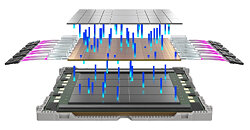UGREEN Showcases the New AI-Powered NASync iDX Series at NAB Show 2025
From April 6-9th, UGREEN, a global leader in consumer electronics and charging technology, is showcasing its innovative NASync series at the NAB Show in Las Vegas. The UGREEN NASync iDX6011 and iDX6011 Pro have been the highlights of the display at Booth SL9210 in the Las Vegas Convention Center. These latest UGREEN NASync iDX models revolutionize data management and security for content creators through advanced AI technology, setting a new standard as the world-first AI-powered NAS.
UGREEN NASync is a series of network-attached storage devices tailored for personal, home, or business use. In March 2024, UGREEN launched a 44-day crowdfunding campaign on Kickstarter for the NASync DXP series, successfully raising over $6.6 million achieved No.1 in the NAS category. This remarkable support highlights the strong demand for advanced storage solutions.
UGREEN NASync is a series of network-attached storage devices tailored for personal, home, or business use. In March 2024, UGREEN launched a 44-day crowdfunding campaign on Kickstarter for the NASync DXP series, successfully raising over $6.6 million achieved No.1 in the NAS category. This remarkable support highlights the strong demand for advanced storage solutions.





































































